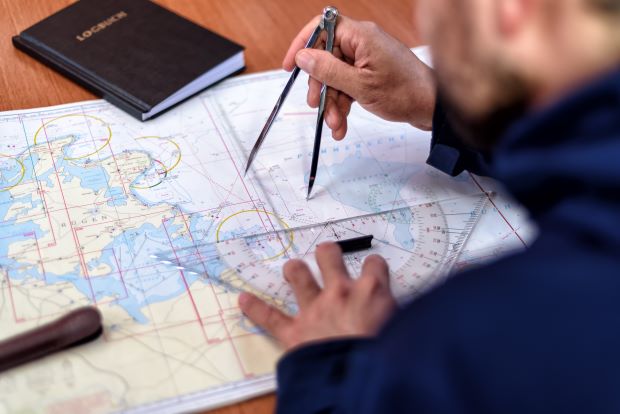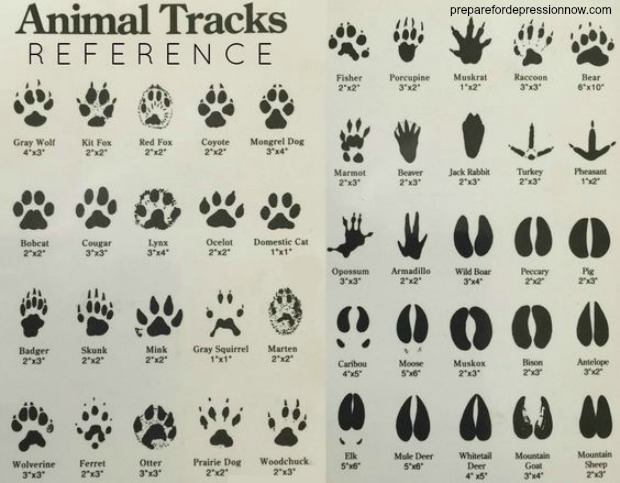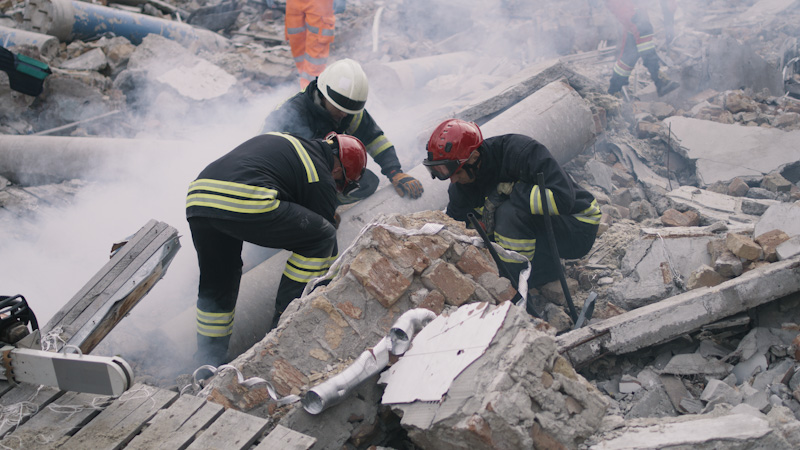The chances are that when the proverbial brown stuff hits the fan most of us will find ourselves in our home region.
This will be for the best in most cases since you have the advantage of dealing with all of it in your own “backyard.” To put it simply, you have better chances of surviving an SHTF event if you know your region well-enough before disaster strikes.
As serious preppers, we know by now that it’s difficult to predict the outcome of a crisis, and you can’t actually prepare for the unknown factor. I’ve talked about this factor on various occasions, and it’s the thing or things that may influence all your prepping plans, the one you have no control over and you can only mitigate the risks once it occurs.
On the other hand, there are some factors such as your location, environment, and population density that should have no secrets for you. As you’ve already established your prepping priorities, one of the main tasks you need to handle is to organize the best course of action for you and your family before the SHTF event occurs.
As a quick example, here are some questions you can answer that will further help you to make an action plan:
- Is bugging in an option and/or priority for your family?
- Are there any chances you will be forced to move to a safer location?
- If so, do you know the safest route to follow?
- Do you have all the needed supplies to make the journey?
- Are there any delays you should consider?
All of the above can be easily answered if you know your region, and I guarantee that you will greatly reduce the chances of the unknown factor to catch you off guard. It becomes mandatory for all of us to know every detail about our home region and use them to our advantage.
Here is what you should know about your home region before SHTF:
Vegetation
If you are familiar with my work, you’ve probably noticed that I’m encouraging foraging as a survival skill. This has become a lost art, and few people are aware that many plants have the ability to save their lives in an emergency situation.
Even if the surrounding vegetation can save your life, caution is recommended when foraging since some plants can put you in an early grave. However, we should not disregard the valuable uses of plants due to the bad reputation of their poisonous counterparts.
You need to take time and practice plant identification to avoid confusing the plants that can save your life with the ones that may have an adverse effect. Start by learning which plants are the most widespread in your region and if some of those plants can help you in an emergency situation.
Your bug out bag or hiking backpack should have a plant identification guide to cover the following:
Edible plants
When food is scarce, or you don’t have enough supplies in your bag, some plants can supplement your diet and provide you with valuable vitamins and overall, proper nourishment. There could be edible roots, flowers, berries, and even grass that grows only in your part of the country. You should take the time to discover such plants and learn how to prepare and eat them safely.
Medicinal plants
Not everyone has extensive medical training, and most of us depend on the knowledge we gained from the first aid classes we attended over the years. Since drugstores and professional medical aid will be hard to find when SHTF, you will need to use the bio-pharmacy from your region to obtain all sorts of cures.
From headaches to sore throats, and even blood clotting, nature has you covered. There are plants that can heal all sorts of ailments and injuries and you just need to learn how to identify and use them.
Poisonous plants
When I talk to people about foraging and plant identification, I encourage them to start first by identifying the plants they should stay away from. Touching the wrong plant or eating the wrong berries can easily seal your fate in the wilderness.
While most plants will make you ill and incapacitate you for a long time, some plants will leave you cold for good. Making a positive identification before usage is the number one rule of every forager. If you are in doubt, leave it be!
Natural water sources
For a serious prepper, water may not seem a primary concern when SHTF, however, it can turn into a real problem if the disaster is not a short-term one. Most of us have a good supply of water and various means to purify the water we are able to find.
To be able to find water in a bug-out scenario when you can’t carry all the supplies in your vehicle, you may want to learn how to find the available water sources from your region. Knowing about the water holes will not only help you restock your supplies, but it will also provide you with a clear picture of the disaster’s gravity.
For example, if there is one major water source in your region, chances are there will be a lot of competition for it. You need to make sure you and your loved ones understand the implications of this and if you are able to deal with the “competition.”
The smart thing to do would be to figure out if there are multiple water sources and target the smaller ones to stay out of sight. When dealing with one source, just wait your turn and replenish your stock when there’s less activity.
Animals
When hunger becomes your main enemy, finding an animal in the wilderness can be a true blessing. However, as most hunters know, there’s a long step from spotting dinner to bagging it. One of the main things you should learn about your region is which animal can be eaten and which will eat you.
Every region in our country has a good selection of walking meals, but there’s an equal competition for them (from both animals and humans). The trick is to learn which ones in your area are the easiest to find.
In some cases, you may not have a hunting rifle to use, or you may want to avoid using one due to various circumstances. This is why it becomes critical to learn various hunting techniques. Additionally, you will also need to learn how to butcher the animal you catch and how to cook it because the meat you just obtained is totally different from the one nicely packaged you get from your grocery store.
As a general rule, your food menu will include mammals, reptiles, insects, and everything in between when your food supplies run low. Since there could also be predators in your home region, you might want to learn what deadly beasts are tracking you.
Every region has its dangerous animals, and a sudden encounter with a bear or a mountain lion will not end well if you don’t know how to act. Not to mention that there are also sneaky, stealthier ones like spiders and snakes that will go unnoticed to untrained eye. You should educate yourself about how to handle the dangerous animals, reptiles, and insects that can be found in your region.
Resources such as building materials
If you are forced to evacuate and your prepping plans are not designed for long-term living, you will have to build a shelter to last. Something sturdy that can provide you with both comfort and protection.
Building a proper shelter is not easy without the proper tools and materials. Also, time might not be on your side, and you need to know beforehand which materials are available, how to plan a shelter (location, living space, etc.), and which one is recommended for your region. The resources from your area will have to be exploited to create shelters, tools, and even weapons or traps if the crisis event extends over a few weeks/months.
Weather patterns
Weather patterns affect our daily living when we already have all the luxury and accommodation we built for ourselves. Imagine what a pain in the behind it will be to handle bad weather when you are living in almost primitive conditions.
Knowing the weather patterns from your region will help you plan better for a bug out location. Flooding, extreme temperatures, or high winds, are natural disasters that can prove deadly for your family if you are forced to extend your stay in the wild.
Start by pinpointing the most dangerous weather risks from your region and the time period when they occur. Research and discover solutions for each weather event identified as a possible risk for your loved ones. Even learning how to make a fire in harsh conditions can become a lifesaver when preparing for various weather scenarios.
Population
Population density when prepping for a SHTF event is not covered as much as other survival topics. This is a major factor that can screw up all your prepping plans and you need to know a thing or two about your neighbors.
Chances are most of them will head for the woods just like you, while others will try to settle an old score. Not to mention that most of them will wait for the government to come and save them. You can imagine how quickly things will go south if that doesn’t happen.
Having means to defend yourself and your bug out location is critical, especially when there is a high population density in your area. Since it is recommended to stay out of sight and keep a low profile during a long-term disaster scenario, that might not always be an option. Before you let fate decide who makes it and who perishes, you might want to make sure you are able to protect what’s yours.
You should learn about traveling without leaving a trace and keeping your perimeter secure. These are skills that you should acquire if there are a lot of people in your region. One usually figures it out how safe or rough the neighborhood is on a daily basis. All this knowledge will help him prepare better for when SHTF.
Let’s say you live in a bad neighborhood, do you think that people will behave nicely and go to church when it hits the fan, or will they do anything they can to survive? The same logic applies to any region regardless of how much population there is. The only difference is that survival will be much more difficult if you live in an area that is prone to criminal activities.
Bug-out routes
If you are forced to evacuate your home, you will need to learn about the escape routes you have and how to use them. Since most people will just use a vehicle for the main part of their journey, eventually, they will have to continue on foot. Regardless if they are in the city or in a rural environment, they will have to flee on foot at some point in time.
Do you know everything about your area in order to make sure you make it to your safe heaven on foot? If you have a long journey ahead, you will need to plan a bug out timeline and stick to it. Consider if you need to cache some supplies along the way. You will also need a meeting spot for your family members and other local friendlies.
Mapping the secluded routes, you feel no others are aware of should be a priority. Also, make sure you map the areas with an abundance of natural resources.
There are a few things that are basic factors when bugging out on foot. Ask yourself this:
- What are you carrying with you?
- Where are you going?
- How are you going there?
Just by figuring out the answer to the above questions will give you a great advantage over the others fleeing from your region.
Also, there are two other things I need to stress
- Proper footwear is a must for every journey. Don’t cheap out on a pair of walking boots because, in the long run, the lower the quality of your footwear, the smaller the chances of completing your journey.
- Being in good physical condition will make sure you are able to carry your bug out bag without too many resting stops. If you never tried carrying your bug out bag in the field for a few miles, you’re going to have a bad time when SHTF.
Concluding
Preparing for the worst and helping for the best is not enough if you are unfamiliar with your home region. Planning and prioritization are the pillars of prepping, but everything else should not become a gambling game. Studying the details of your home region will give you a better chance of surviving a crisis event. It provides you an advantage that cannot be quantified in words and it will allow you to live and tell the tale.
















Hog Jowl Homestead | January 16, 2020
|
Great article, i may have missed it but part of knowing where you are is having maps. It was fairly inexpensive to go online and get some TOPO maps of my area. I have all the state and federal land maps around me as well that i have collected hiking the area. One thing i found very important was to indicate every entrance to my rural area. As there are only three main roads, someone with just a chain saw could easily block the roads in or out. Water sources are learned with time. There are a few natural springs around us that we found from having friendship with our neighbors.
I really need to get out and meet my neighbors, still many i have never met. Its nice to know which direction you need to guard the most because you cant be everywhere at once.
Bill in Idaho | March 16, 2020
|
One Point – Water Sources are more plentiful than anyone would believe. The time of the year – the season – has a strong influence on that. In our area – the Middle Snake River Plain/ aquafer is right below us. We are on the north boundary of the Great SW American desert – and ground water is available – you have to find it. Even South of the Snake – the Owyhee Mountains and canyons have a lot of small springs. Check out your area for possible sites.
Ray Goff | March 19, 2020
|
Interesting and informative videos. Yes I agree we have had a large terrorist cell inside the US. They are supported by radicals inside Congress. America is fragile now with the C virus looming over us. Yes we will get pass this crisis. Putting another crisis on America like a EMP attack would be devastating and catastrophic. We are one election away from a one world government and communism. Most know what that entails and what comes after this. Pray, repent and be prepared. We are in the end days. These dark days are soon upon us. Sound the alarm for we Christians are all watchmen. Spread the Good News. Be not afraid, have faith God is in control.
Sam Hill | October 25, 2020
|
Very true indeed! Thank you.
Kathy Rea | December 4, 2020
|
I so agree with you. While my faith is strong, it will take survival to make it until the good Lord comes for us. I pray and PREPARE…
MARIA E PICKELL | March 23, 2020
|
Thank you for your information, if people were interested at all in the importance of nature to heal us of body problems, we would probably have more healthy and happy families and individuals in this world. How can we teach them when they think Doctors are gods and they are the only once can cured them from anything.
I am glad for your educational website, where we can learn that God created this herbs for our own benefits, He had a purpose to created them for healing of His children.
Simple thing that nobody believe in but it is a fact. God bless you and help us all in this trouble time.
Richard Ley | May 30, 2020
|
One thing that is always overlooked and underestimated is the security provided by dogs. They are not referred to as watch dogs for nothing. Dogs hearing is 8 times better than ours. In almost all military uses of dogs the soldiers survival rate was higher. Dogs on “guard duty” will detect better than any human. Yet you will not see articles on this supposedly by knowledgeable preppers. Mainly dogs don’t need batteries. Three or four dogs can secure an area and the human response can determine whether you survive or not. With dogs you can operate with a small community.
Bill in Idaho | May 30, 2020
|
Do Not Forget, Richard – Dogs – Big or Small All need to Eat. They also need lots of Clean, Fresh Water. A Purification straw won’t work.
AV | March 10, 2021
|
Indeed and with 8X better hearing, they will bark well in advance. That may not be so good as ur presence is then compromised.
AlexOL | May 31, 2020
|
Excellent article. Those points have always been on my mind, I agree it can make a difference whether in the city or rural areas. I live in the city but our family has a small rural property where my parents live so that’s out BOL if things get too crazy here in town. It’s a 100 miles away but can be walked in 3 to 5 days if needed, I’ve already done that to map the off-road routes as for safety, resources and communications. Around my house I have mapped the neighborhood for yrs during my walking/running/biking and even my bug-out practice exercises. Water is abundant in the commercial buildings atriums, it’s already treated (as are swimming pools) so it could be filtered or re-purified if needed and even completely re-treated if necessary. Of course others would think the same but only facing the situation I’d be able to adapt so we’ll see (or not, hopefully). I’ve mapped those main water sources along the first part of my route and closer to Bug Out Place so maybe just maybe that’s enough to get us there if needed. Anyway I keep doing what I can do LOL. Stay safe everyone.
Ric | July 20, 2020
|
Dogs work both ways, mine simply camping went nuts hearing something during the night. During a bug out on foot my dog could be an issue with alerting people.
Mike F | July 20, 2020
|
Thank you for mentioning non-typical game animals, Bob. Hunting large game animals is a short term solution. I live in a rural area, but not all of us hunt in a typical deer season and almost no one here hunts the turkeys. I’m fairly certain that my neighbors and I would hunt them out within a couple of weeks of the groceries stores being closed.
Brant Ardrey | October 25, 2020
|
you dont want dogs that bark alot..you dont want really more than one ? food issue vet issue and too much barking alerts others where your at? i live on a vet docs property and has 3 , but a small chihuahua mix..wont shut up almost 5yrs barking everytime i go to the house , .annoying is also a factor beit for you or someone nearby. .some .neighbors about 500′ away had a small dog that would do nothing but yap for hours on end,.finally my visiting GF went and told them off somehow month later no more noise? animal control?. .anyway mums the word
AV | March 10, 2021
|
Yup. I still have mutts though
Jerry G | December 4, 2020
|
Terrain analysis! Learn good soils and if hostile conditions prevail know the choak points RE: ambush defense ect